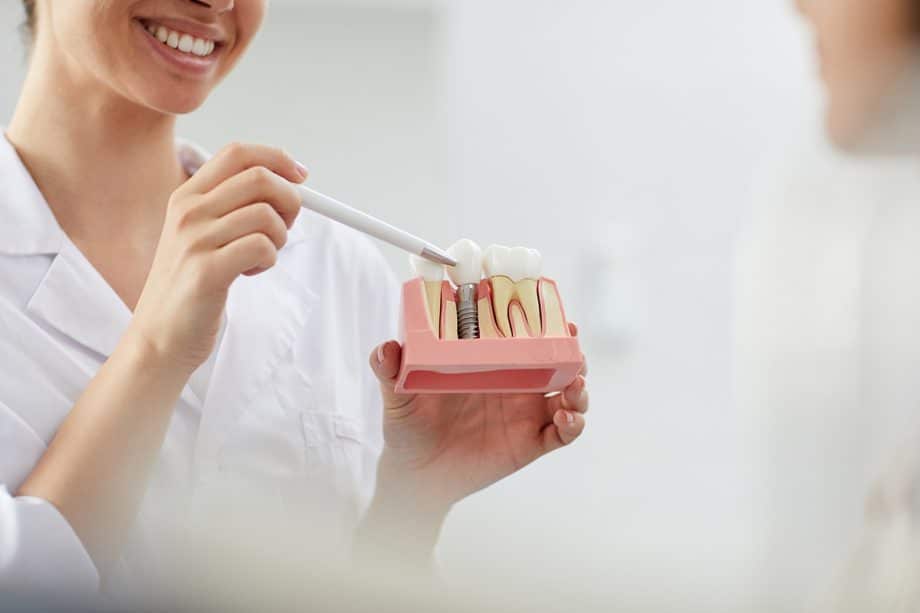Dental implants have helped millions of individuals improve their smile and dental health since their inception in 1965. They are a viable option for many people who are missing their natural teeth, offering a natural appearance, improved oral health, durability, and convenience.
Dental Implant Materials
Initially, nearly all dental implants were crafted from titanium and titanium alloy. However, thanks to advances in technology and research, dental implants are now crafted from several various materials, each having unique advantages and properties. The materials used are biocompatible, which means the human body is unlikely to reject them. They are also resistant to both fracturing and corrosion.
While dental implant crowns are usually made from porcelain, composite, and metals, common types of implant materials include:
Titanium
Titanium is the preferred material for dental implants, as it is proven to encourage the process of growing into and fusing with the bone. It’s also comparatively less expensive. About a week after receiving the implants, the bone begins to fuse to the titanium post, and the process continues for the rest of the patient’s life. Titanium tooth implants can last a lifetime with proper care. They typically have two parts:
- The implant screw, which acts as a tooth root replacement
- A plant abutment, which connects the screw to the crown
The system is designed to be placed deep into the human bone separately in two pieces.
Zirconia
Zirconia is a newer implant material that has proven to be promising. Zirconia dental implants are frequently recommended for patients who are allergic to titanium. They are usually one-piece implants that can be placed in a single session. But, they can be harder to insert compared to titanium implants.
Keep in mind that the right dental implant material for your implants may depend on your specific condition and requirements. You should discuss the pros and cons of each with your dental provider.
Frequently Asked Questions About Dental Implants
What is the Success Rate of Dental Implants?
The dental implant success rate varies from one person to the next and with the dental patient’s health and habits. Dental implants have reported success rates above 90-95 percent for a healthy individual with good oral hygiene and good health.
Can Dentures Be Made into Implants?
Unfortunately, dentures can’t be made into dental implants. With implants, the patient receives metal screws in their jawbone to help anchor and support their artificial teeth (dentures). However, in some cases, a dentist can place the metal screws underneath existing dentures to help stabilize and support the dentures. But this is only a good idea if the current dentures are otherwise in excellent condition.
It’s imperative to consult with an experienced dentist to have your current dentures carefully examined.
Dental Implants at Suwanee Family Dentistry
At Suwanee Family Dentistry, we are happy to explore your options for dental implants with you. Our team will ensure that you are an ideal candidate for dental implants and explain the entire procedure to you. If you aren’t a good candidate for dental implants, our office offers many other options for replacing missing teeth. We want to help you achieve the best smile possible!
Call 678-714-2380 or contact us today to learn more about dental implants and schedule an appointment.
